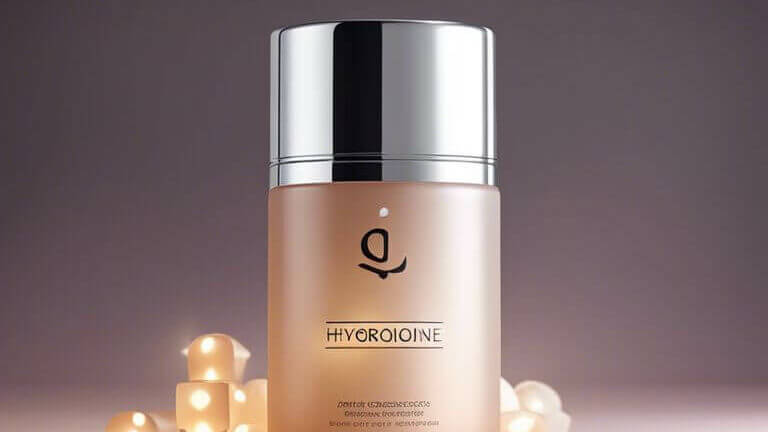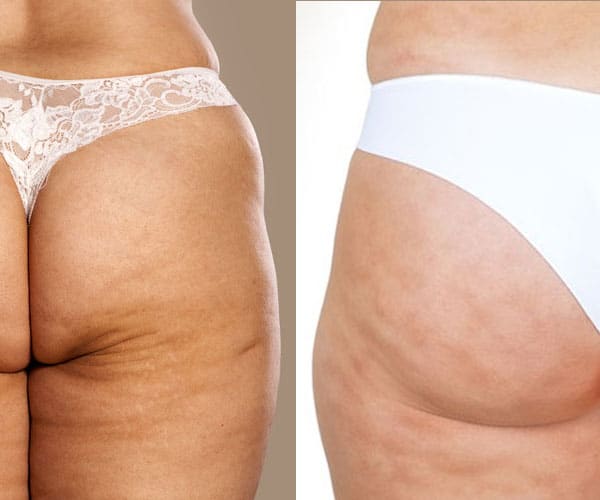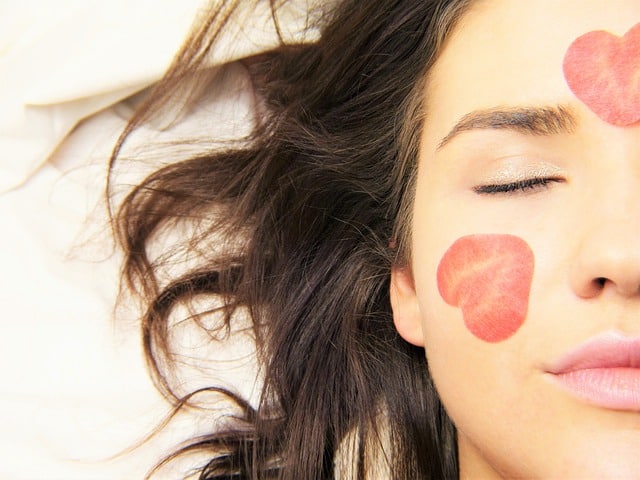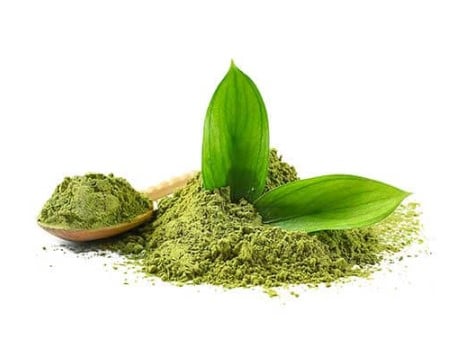Unveiling the Truth: Is Hydroquinone the Safe Answer to Skin Lightening?
It is crucial for individuals seeking skin lightening solutions to understand the safety and efficacy of hydroquinone as a skin lightening agent.
Hydroquinone has long been a controversial topic in the world of skincare, with concerns and misconceptions surrounding its use.
In this post, we will research into the truth behind hydroquinone, addressing common concerns and misconceptions to provide a comprehensive overview for individuals looking to achieve a brighter complexion.
From its potential risks to its undeniable effectiveness, we will explore all aspects of hydroquinone to help you make an informed decision about incorporating it into your skincare routine.
Stay tuned for a detailed examination that will empower you with the knowledge needed to navigate the world of skin lightening safely and effectively.
Understanding Hydroquinone
Chemical Composition and Properties
Now, let’s probe the chemical composition and properties of hydroquinone. This compound is a skin-lightening agent that is commonly used in skincare products.
Hydroquinone works by inhibiting the enzyme tyrosinase, which is responsible for the production of melanin in the skin.
It is important to note that hydroquinone should be used cautiously and under the guidance of a dermatologist due to potential side effects.
Mechanism of Action for Skin Lightening
To understand how hydroquinone works for skin lightening, we need to look at its mechanism of action.
Hydroquinone penetrates the skin and decreases the production of melanin, the pigment responsible for skin color.
By inhibiting tyrosinase, hydroquinone helps to reduce hyperpigmentation and brighten the complexion.
Over-the-Counter vs. Prescription-Based Hydroquinone Products
Understanding the difference between over-the-counter and prescription-based hydroquinone products is crucial.
Over-the-counter products typically contain lower concentrations of hydroquinone, while prescription-based products may have higher concentrations.
It is advisable to consult a dermatologist before using prescription-strength hydroquinone to ensure safe and effective results.
Role of Hydroquinone in Dermatology
Hydroquinone plays a significant role in dermatology for treating various skin conditions such as melasma, hyperpigmentation, and age spots.
Dermatologists often recommend hydroquinone for its effectiveness in lightening dark spots and promoting an even skin tone. However, it is important to follow the prescribed usage guidelines to avoid any adverse effects.
The Safety Profile of Hydroquinone
Short-Term Safety Considerations
Your skin may exhibit temporary redness or irritation upon initial use of hydroquinone, which is a common reaction that typically subsides as your skin becomes acclimated to the product.
Long-Term Use: Potential Risks and Concerns
To address concerns surrounding the long-term use of hydroquinone, it is necessary to note that there is a lack of conclusive evidence linking prolonged use of hydroquinone to serious health risks or complications.
There have been rare cases where prolonged and misuse of hydroquinone, particularly in higher concentrations and without medical supervision, has been associated with potential risks such as skin discoloration and increased sensitivity to UV radiation.
Allergic Reactions and Sensitivities
Allergic reactions to hydroquinone are uncommon, but for individuals with sensitive skin or previous allergies to similar skin care ingredients, it is recommended to perform a patch test before regular use.
It is important to consult a dermatologist if you experience any severe reactions or persistent irritation after using hydroquinone.
Studies on Carcinogenicity and Other Serious Risks
While hydroquinone has been the subject of scrutiny regarding its potential carcinogenic effects, studies have not conclusively proven a direct link between hydroquinone use and cancer in humans.
The Debate on Hydroquinone’s Potential for Ochronosis
The potential risk of ochronosis, characterized by bluish-black discoloration of the skin, is often associated with prolonged use of hydroquinone in high concentrations, particularly in individuals with darker skin tones. However, this risk is rare and predominantly reported with unregulated and unauthorized products.
Efficacy of Hydroquinone in Skin Lightening
Clinical Studies Supporting Hydroquinone’s Use
Not only is hydroquinone one of the most extensively studied ingredients in skincare, but numerous clinical trials have consistently demonstrated its effectiveness in reducing hyperpigmentation and achieving a more even skin tone.
Studies have shown that hydroquinone can significantly lighten dark spots and melasma when used as directed by a dermatologist.
Comparative Analysis with Other Skin Lightening Agents
Any discussion about skin lightening solutions would be incomplete without comparing hydroquinone to other commonly used ingredients.
Comparative studies have indicated that hydroquinone, with its ability to directly inhibit melanin production, often surpasses the efficacy of other agents like kojic acid or arbutin.
Hydroquinone Alternative Agents Directly inhibits melanin production May work through different pathways Requires prescriptions for higher concentrations Available over-the-counter in some formulations Success Rates and Patient Satisfaction
Skin lightening treatments with hydroquinone have shown consistently high success rates, leading to increased patient satisfaction.
Users often report significant improvements in their skin tone and reduced appearance of dark spots, boosting their confidence and enhancing overall skin appearance.
Variables Affecting Efficacy
Patient compliance, duration of treatment, and skincare regimen can all impact the effectiveness of hydroquinone in skin lightening.
It is crucial for patients to follow their dermatologist’s instructions carefully and consistently for optimal results.
Other factors such as sun exposure, hormonal changes, and underlying skin conditions can also influence the efficacy of hydroquinone treatment.
Side Effects and Common Complaints
Mild to Moderate Side Effects Encountered
Despite the effectiveness of hydroquinone in skin lightening, some individuals may experience mild to moderate side effects such as dryness, redness, or stinging sensation upon initial application.
Managing Irritation and Redness
For individuals experiencing irritation and redness from hydroquinone use, it is important to ensure proper moisturization and sun protection to alleviate these symptoms.
Furthermore, incorporating gentle cleansing and avoiding harsh exfoliants can help minimize irritation and redness.
Complaints about skin irritation and redness from hydroquinone use are not uncommon, but with the right approach, these issues can be effectively managed.
It is important to consult with a dermatologist if irritation persists or worsens despite proper skincare practices.
Strategies to Minimize Adverse Reactions
It is crucial to conduct a patch test before incorporating hydroquinone into your skincare routine to minimize adverse reactions.
Additionally, using the product as per the recommended dosage and frequency can help prevent potential side effects.
Consistency in application and adhering to a proper skincare regimen will contribute to a more positive experience with hydroquinone.
To ensure optimal outcomes while using hydroquinone, be sure to follow the instructions provided by skincare professionals and dermatologists.
Regular check-ins with your healthcare provider can also help mitigate any unwanted reactions and ensure safe usage of the product.
Recognizing Signs of Overuse and Misuse
Another common concern regarding hydroquinone is the risk of overuse and misuse, which can lead to adverse effects such as skin thinning or discoloration.
To prevent such issues, it is crucial to follow the recommended guidelines and avoid exceeding the prescribed dosage.
Understanding the potential risks associated with overuse is key to maintaining the safety and efficacy of hydroquinone for skin lightening.
To avoid the potential pitfalls of overuse and misuse, it is important to seek guidance from skincare experts and pay close attention to any changes in your skin’s appearance or texture.
Early detection and intervention can prevent more severe consequences and ensure a positive experience with hydroquinone.
Regulatory Perspectives and Restrictions
FDA Regulations on Hydroquinone Concentrations
Restrictions: To ensure the safety and efficacy of skin products containing hydroquinone, the U.S. Food and Drug Administration (FDA) strictly regulates the concentration of hydroquinone allowed in over-the-counter products to 2%. Higher concentrations are only available through prescription under the supervision of a healthcare professional.
International Stance on Hydroquinone Use
For: Many countries around the world have varying regulations on the use of hydroquinone in skincare products.
Some countries allow over-the-counter sale of hydroquinone products, while others require a prescription for any concentration.
Bans and Restrictions in Various Countries
Hydroquinone: Some countries have outright banned the use of hydroquinone in skincare products due to safety concerns. Others have placed restrictions on the concentration allowed or require a prescription for use.
Implications of Regulatory Actions on Availability
Hydroquinone: The regulatory restrictions on hydroquinone in various countries can impact the availability of skin lightening products containing this ingredient.
Alternatives to Hydroquinone
Natural Skin Lightening Ingredients
Unlike hydroquinone, natural skin lightening ingredients offer a gentler alternative for those seeking a more holistic approach to skincare.
To harness the power of nature, look for products containing ingredients like licorice extract, vitamin C, and niacinamide, which can help brighten and even out skin tone without the potential side effects associated with hydroquinone.
Synthetic Alternatives with Similar Efficacy
The search for synthetic alternatives with similar efficacy to hydroquinone has led to the development of ingredients like kojic acid, arbutin, and tranexamic acid.
These compounds work by inhibiting melanin production and can be effective for addressing hyperpigmentation issues.
The key is to find products that are formulated with well-researched and proven synthetic ingredients to ensure both safety and efficacy.
Ingredients: kojic acid, arbutin, tranexamic acid
Emerging Treatments and Technologies
Efficacy
Technologies
Evaluating the Pros and Cons of Non-Hydroquinone Options
For
Alternatives
Navigating the Market: Choosing a Safe Skin Lightening Product
Key Ingredients to Look for in Skin Lightening Products
All skin lightening products are not created equal. The key to finding an effective and safe skin lightening product lies in understanding the ingredients it contains.
Look for clinically proven ingredients like hydroquinone, retinol, kojic acid, and vitamin C which have been shown to fade dark spots and even out skin tone effectively.
Red Flags and Ingredients to Avoid
Skin lightening products that contain questionable ingredients such as mercury, steroids, and bleach can pose serious health risks and should be avoided at all costs.
Always read the ingredient list carefully and steer clear of products with undisclosed or harmful substances.
Skin lightening products with these harmful ingredients may lead to irreversible damage to the skin, including thinning, increased sensitivity, and even long-term health consequences.
Understanding Product Labels and Marketing Claims
It’s important to scrutinize product labels and marketing claims when selecting a skin lightening product.
Avoid products that make unrealistic promises or overly exaggerated claims of overnight results.
Look for products that are backed by scientific research and studies to ensure their efficacy and safety.
Choosing a reputable brand with transparent labeling and honest marketing practices is key to selecting a safe and effective skin lightening product.
The Importance of Patch Testing and Allergy Screening
An important step in introducing a new skin lightening product into your skincare routine is patch testing and allergy screening.
Testing the product on a small area of skin before widespread application can help prevent adverse reactions and skin sensitivities.
Consult with a dermatologist to determine the best course of action for your individual skin type and concerns.
For instance, individuals with sensitive skin or allergies may be at a higher risk of adverse reactions to certain ingredients found in skin lightening products.
Expert Opinions and Dermatological Advice
Dermatologists’ Perspectives on Hydroquinone Use
Any discussion on the safety and efficacy of hydroquinone for skin lightening must consider the insights of dermatologists, who are experts in skincare.
Many dermatologists recommend hydroquinone as a safe and effective ingredient for treating hyperpigmentation, such as dark spots, melasma, and acne scars.
Professional Guidelines for Safe Application
Application of hydroquinone should always follow professional guidelines to ensure safe and effective results.
For instance, dermatologists recommend using hydroquinone in moderation, typically for a limited period of time under their supervision to avoid any potential side effects.
When to Consult a Dermatologist About Skin Lightening
With concerns about safety and efficacy, it’s important to know when to consult a dermatologist about skin lightening treatments.
When over-the-counter products fail to deliver desired results or if any adverse reactions occur, seeking dermatological advice is imperative.
Tailoring Skin Lightening Treatments to Individual Needs
To address individual skincare needs effectively, dermatologists can tailor skin lightening treatments.
About 70% of dermatologists believe in customizing treatment plans based on the patient’s skin type, concerns, and goals to achieve optimal results.
Towards Responsible Use and Cultural Awareness
Addressing the Social Implications of Skin Lightening
Implications: For many individuals, skin lightening goes beyond mere cosmetic enhancement and examines into social pressures and deeply ingrained beauty standards.
It is crucial to consider the societal implications of skin lightening and the impact it can have on self-esteem and cultural identity.
The Impact of Cultural Attitudes on Skin Lightening Practices
Cultural: It is imperative to acknowledge that cultural attitudes towards skin tone play a significant role in driving the demand for skin lightening products.
In some societies, fair skin is often associated with beauty, success, and social acceptance, leading to the normalization of skin lightening practices.
Advocating for Informed Choice and Safe Practices
Implications: Advocating for informed choice and safe practices in skin lightening is paramount.
Individuals should have access to accurate information about the ingredients used in lightening products, their potential risks, and the importance of consulting with skincare professionals.
Promoting Skin Health Over Aesthetic Trends
Advocating: While aesthetic trends may influence perceptions of beauty, prioritizing skin health should be the ultimate goal.
Emphasizing proper skincare routines, sun protection, and overall skin wellness can lead to long-term benefits that transcend temporary beauty fads.
Summing up
Considering all points discussed, hydroquinone can be a safe and effective skin lightening agent when used correctly and under the guidance of a dermatologist.
It is necessary to understand its mechanism of action, potential side effects, and the importance of sun protection while using this ingredient.
By dispelling common concerns and misconceptions surrounding hydroquinone, individuals seeking skin lightening solutions can make informed decisions about incorporating this ingredient into their skincare routine.
Consultation with a skincare professional is always recommended to ensure optimal results and minimize any risks associated with its use.
Ultimately, with proper education and care, hydroquinone has the potential to be a valuable tool in achieving a brighter and more even complexion.





